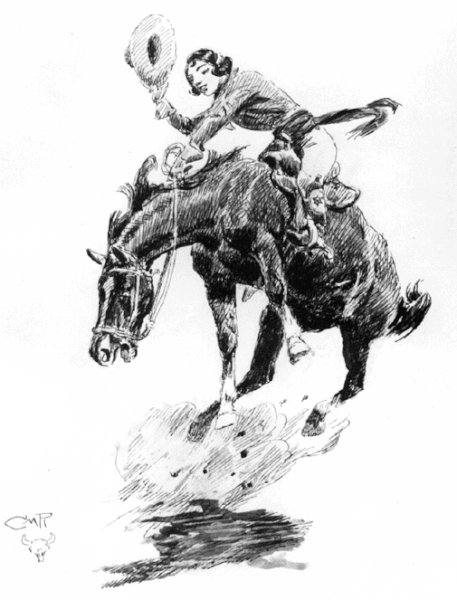
Lee Kuan Yew / Photo by U.S. Department of Defense
A few days ago, the editorial page of China’s Global Times basically pointed at America’s political system and laughed. Look at what the nagging democrats coughed up!
Big-mouthed, anti-traditional, abusively forthright, [Trump] is a perfect populist that could easily provoke the public. Despite candidates’ promises, Americans know elections cannot really change their lives. Then, why not support Trump and vent their spleen?
The rise of a racist in the US political arena worries the whole world. Usually, the tempo of the evolution of US politics can be predicted, while Trump’s ascent indicates all possibilities and unpredictability. He has even been called another Benito Mussolini or Adolf Hitler by some Western media.
Mussolini and Hitler came to power through elections, a heavy lesson for Western democracy. Now, most analysts believe the US election system will stop Trump from being president eventually. The process will be scary but not dangerous.
Even if Trump is simply a false alarm, the impact has already left a dent. The US faces the prospect of an institutional failure, which might be triggered by a growing mass of real-life problems.
Pundits immediately (and rightly) jumped on this, pointing out the flaws that the paper was ignoring in China’s own authoritarian system of government, which not only excludes public input but also suppresses dissent. “Of course, there are a couple of glaring lacunae in that argument,” noted the Washington Post‘s Simon Denyer. “The most obvious being the tyranny and mass insanity unleashed by Mao Zedong, who killed tens of millions of his own people, (as indeed Stalin did in the Soviet Union). But hey, that bit of history is officially glossed over here.”
And no matter the populist lunacy into which democracies descend, they’re pretty good at peaceful shifts in political leadership. Dictatorships are a bit clumsy at that whole transition of power thing.
But Denyer and other commenters missed the fact that the Global Times editorial wasn’t a one-off. It’s part of a much larger reconsideration of the principles of government by much of the world that hasn’t fully (or at all) adopted liberal democratic values.A lot of that “reconsideration” is self-serving twaddle by autocrats looking to retain power while granting their subjects sufficient access to prosperity that they don’t revolt. But there’s enough truth to the analysis of the West’s flaws and the growing political crisis in supposedly stable, established systems that editorials criticizing democracy can gain traction among educated people who are deciding on their own future path.
Similar criticism could also be directed at Bernie Sanders–a surging politician who would and should be the year’s astonishment if Americans weren’t flocking in even greater numbers to support an orange authoritarian narcissist. The Vermont socialist’s promises to loot prosperous Americans to support a ludicrous grab-bag of unaffordable goodies are excellent examples of a prevailing problem with western democracies that dominated attention before the emergence of an open thug on the U.S. scene.
In 2014’s The Fourth Revolution: The Global Race to Reinvent the State, John Micklethwait, then editor-in-chief of The Economist, and Adrian Woolridge, management editor of the same magazine, sketched the “revolution” in government through the nation state, the liberal state, and the welfare state. Published just two years ago, the book seems almost quaint as it discusses the crisis in which the modern welfare state finds itself–before the political eruptions of the last year which drove a populist thug to prominence in the Republican Party, an economically illiterate socialist to draw crowds of young Americans, a crazy Trotskyite to gain the leadership of Britain’s Labour Party, the surge of nationalist-populists in Germany, France… But though overshadowed since, the authors’ points about the crisis of the modern western political system remains valid. Describing the condition of Britain in the 1970s, they write, “Ever-bigger government meant ever-greater social dysfunction. Vested interests competed ever more viciously for their share of the pie.”
More importantly, those flaws have been picked up by those seeking an alternative–an alternative to western democracy, and also an alternative to loosening their own grip on power.
“When you have popular democracy, to win votes you have to give more. And to beat your opponents in the next election, you have to promise to give more away. So it is a never-ending process of auctions–and the cost, the debt being paid for by the next generation,” they quote Singapore’s Lee Kuan Yew as commenting. Lee, who died last year, famously created an economically free and socially authoritarian city state that has limited democratic input–and stiff penalties for too vigorously criticizing the powers-that-be.
Lee was listened to and is eagerly studied, partly because he tells many people what they want to hear, but also because even when his tightly controlled system suffers an economic setback, it still seems to be doing better than the much freer democracies of the West.
And his example has been adopted and touted elsewhere. At the China Executive Leadership Academy in Pudong (CELAP) which trains the country’s future government apparatchiks and considers models to take the massive country into the future “there are better places to look than gridlocked America–most notably Singapore.”
The Singapore model is also admired, write Micklethwait and Woolridge, in places including Russia, Dubai, and Rwanda.
So the Global Times editorial fits into the ongoing erosion and disparagement of the western model of liberal democracy–often on a very calculated and deliberate basis–by people considering what system of governance should take them into the future. Many of those people obviously want an authoritarian model that maintains their clout and privileges. But to the extent the established western democracies keep shitting the bed, the Lee Kuan Yews of the world will find an increasingly receptive audience among those who need a system that effectively allows them to get rich while protecting lives and property. Civil liberty…well, if it leads to Trump, maybe they’ll pass.
While critical of libertarianism–at least in quasi-anarchist form–Micklethwait and Woolridge call for a revival of classical liberal solutions which most people would recognize as libertarian. They want to see the state restrained and reduced in size, power devolved, and rights protected. They see that–convincingly I think–as reinvigorating liberal democracy and securing its continued existence where it is already established, as well as its status as a model for the rest of the world.
“It is time to put the ‘liberal’ back into ‘liberal democracy’: to persuade both voters and governments to accept restraints on the state’s natural tendency to overindulge itself.”
Yes, I think that’s convincing. But how to accomplish that is the trick. How do you convince people to rein it in when they’re reveling in the use of the state as a bludgeon (Trump voters) or a mugger-for-hire (Sanders supporters)? Because if they don’t limit themselves, the system will fall apart–and then the Lee Kuan Yews of the world will happily do the limiting for them.






Recent Comments